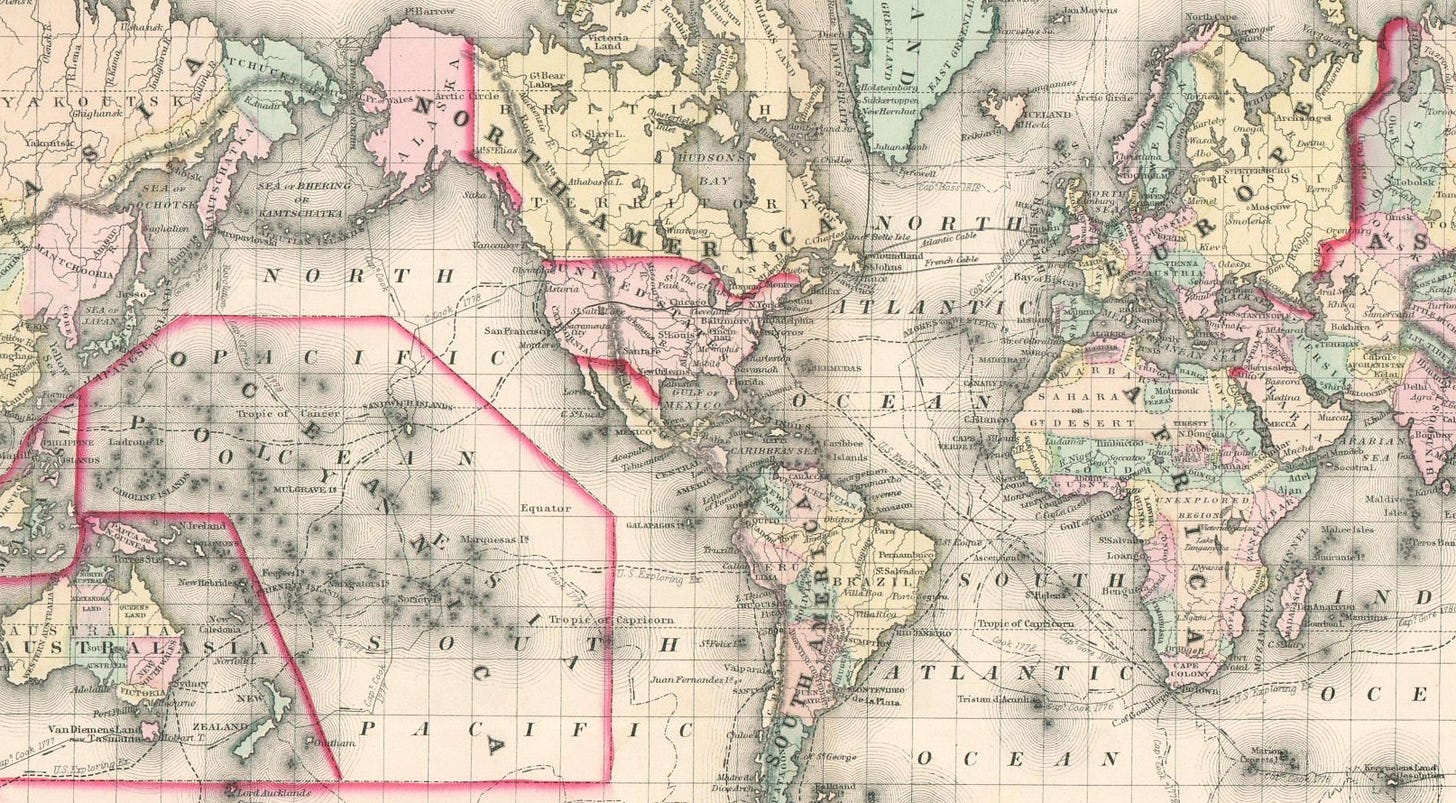Week signals: Visions of decline
Plus: watch points for trade, Israel, Iran, Africa, the BRICS, the UK, and France.

This week:
IN REVIEW. The next American revolution, internal truths self-evident, navigating the rebordered economy, and managing the end of exceptionalism.
UP AHEAD. Facesaving frameworks, false positives and promises, non-alignment, and shifting narratives.
Connect with me on LinkedIn and X (Twitter).
Week Signals is the Saturday note for clients of Geopolitical Strategy, also available to GD Professional subscribers on Geopolitical Dispatch.
The Week in Review: From cosmopolis to fortress
The week began with the White House on the defensive. Questions were being raised over the efficacy of its campaign in Iran. The One Big Beautiful Bill was facing hurdles in the Senate. It ended on the offensive. Donald Trump had turned his gaze to Gaza, and again to Ukraine. The One Big Beautiful Bill Act was signed into law on the Fourth of July. Markets closed at a record high.
On one level, President Trump is winning – and said the New York Post – but on another, he is still highly unpopular, has potentially made a debt crisis worse, and has proven himself easily wedged on foreign and trade policy alike.
Irrespective of whether you think Trump is doing a good job, there's an animating force here that’s causing him to make decisions and take risks far out of the norm for recent US administrations. This may partly be the Art of the Deal, or the consequence of an unconventional background, but there's a historical context that's driving him, his government and a significant share of the American public.
For decades, if not over a century, the US has been an empire. Territorially, it stretches from Micronesia to Maine, and the Arctic to the Caribbean. Militarily, it’s unmatched. It can fly B-2 bombers from Missouri to Fordow undetected. It has troops or armed agents on every continent. Economically, it not only has the highest nominal GDP (including per capita among large states), but the biggest companies and the deepest markets. Culturally, even with its soft power arguably declining, the world still clamours for its films, food, fashion and music.
Yet Americans, as they are fond of saying each Independence Day, are no fans of empire. The relationship between heartland security and foreign entanglement has not always been clear. Globalisation, a largely American phenomenon in its most recent form, has helped Wall Street more than Main Street. The underlying principle behind Trump’s proposed tariffs has been that everyday Americans were getting screwed by trade.
Yet part of this national grievance is also cultural, even ethnic. Foreigners weren’t just stealing jobs abroad, but stealing them at home, and coming across the border in uncontrolled hordes. A sense of national coherence was not just absent overseas, but in the streets. What had become of the US, and who were its leaders working for? It’s hard not to see the term “globalists” as a catch-all for the “other”.
In his 2019 book Visions of Empire, sociologist Krishan Kumar examines five great empires: the Ottoman, Habsburg, Russian/Soviet, British, and French. In each, he found a self-described civilising or at least civilisational mission. Each was animated by a mission of “what we do” as much as “who we are”. The US, whether under Kennedy or Reagan, had this same impulse. Whether William McKinley’s Manifest Destiny, or Superman’s Truth, Justice and the American Way, there was a sense of higher purpose. And while many Americans always grumbled that this was not who they were truly for, society at large, and certainly its elites, went along with it.
Despite his designs on Canada and Greenland, or his admiration for both McKinley and Superman, Trump almost certainly represents the views of the so-called America First isolationists (and hence their outrage when he almost went to war in Iran). From strong borders and high tariffs to keep the “other” out, to gutting things like USAID that send taxpayer dollars overseas, Trump is less imperialist in Kumar’s sense of the term, than the type of ethno-nationalist that would have once been familiar in the vassals of Serbia, Bessarabia, Scotland or French Algiers.
But in asking why the five empires he examines ultimately failed, Kumar saw their decline as less about the nationalisms of their peripheries than the nationalisms of home. The multiethnic Ottoman Empire, with the revolt of the Young Turks, became Turkey. Austro-Hungary was as fractured by its German speakers in the north as its Slavs in the south. The British Empire ended when its troops, returning from World War II decided they wanted the NHS more than they wanted colonial possessions. The Soviet Union fell apart as much due to Yeltsin’s Russian nationalism as Baltic separatism or economic perestroika.
The US empire could likewise be facing its greatest threat not in the Middle East or the South China Sea, but the Midwest and Deep South. More Americans, or at least enough to make it happen, are demanding a “normal” country, insofar as normal means one that’s relatively homogenous and doesn’t get involved in the wider world.
Whether you see this as natural or racist, logical or lamentable, this partial collapse of a US universalist identity is perhaps the biggest shaper of current events, including but not limited to the Trump administration. Culture is generally downstream of politics, which is downstream of economics, but at this stage of history, it seems to be in reverse (I don’t like to explain things in cycles, but this may be an example of the US being a late-stage empire).
From Alligator Alcatraz, to the Islamophobia being meted out to New York’s Zohran Mamdani, we can see how the US may be mirroring other empires in the swift collapse of their prior multiculturalism. But for businesses and investors, what does this mean for the multinational corporation or cross-border capitalism? If art imitates life, how will markets imitate this shift in the US national character? What signposts and strategies should you watch out for?


